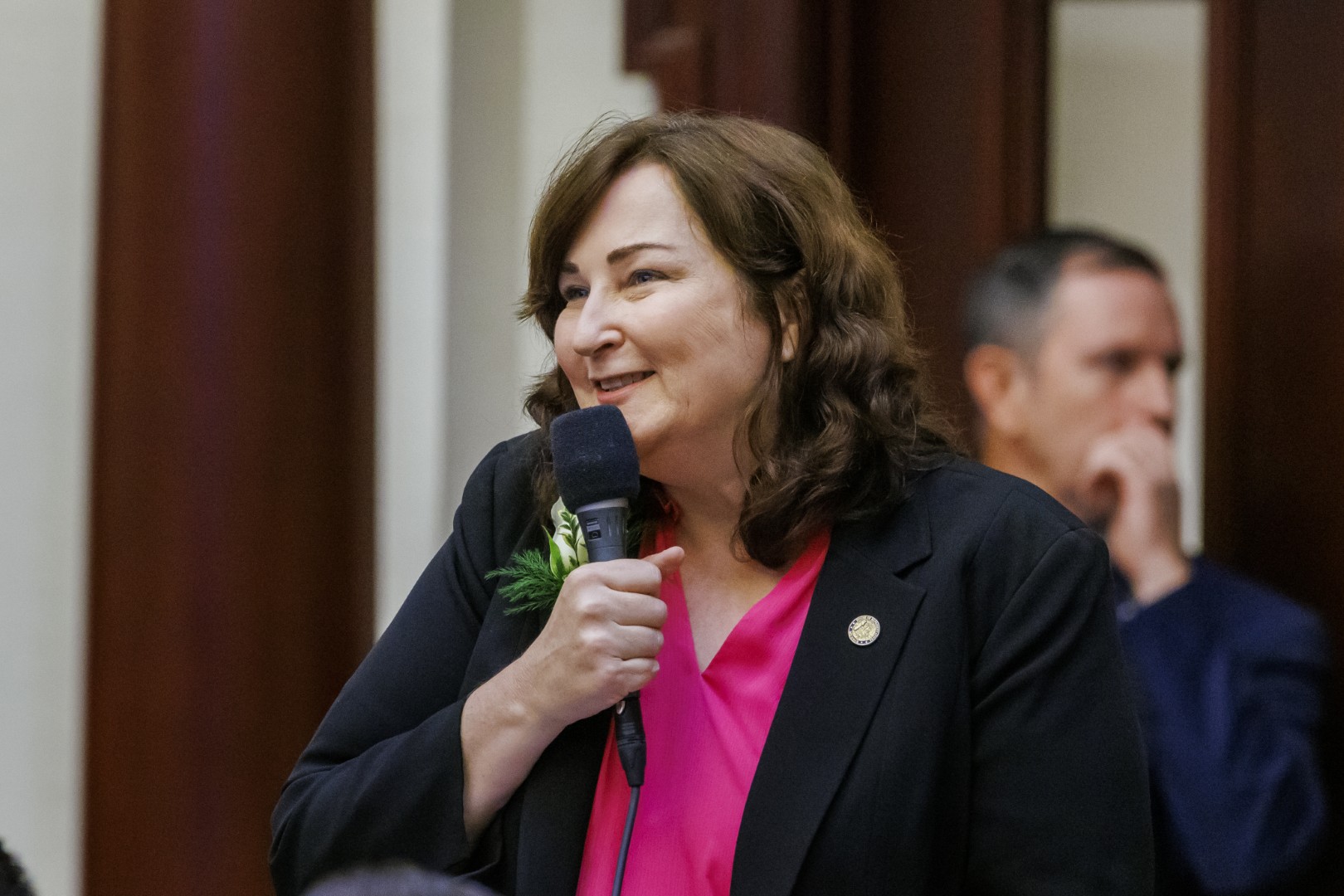President Donald Trump promised voters an administration that wouldn’t waste precious American lives and taxpayer treasure on far-off wars and nation building.
But just weeks into his second go-around in the White House, the Republican leader laid out plans to use American might to “take over” and reconstruct Gaza, threatened to reclaim U.S. control of the Panama Canal and floated the idea that the U.S. could buy Greenland from Denmark, which has shown no interest in parting with the island.
The rhetorical shift from America First to America Everywhere is leaving even some of his allies slack-jawed — and wondering if he’s really serious.
“The pursuit for peace should be that of the Israelis and the Palestinians,” a flummoxed Sen. Rand Paul, the Kentucky Republican and Trump ally, posted Wednesday on social media. “I thought we voted for America First. We have no business contemplating yet another occupation to doom our treasure and spill our soldiers’ blood.”
The President’s shocking declaration Tuesday that he wants to remove roughly 1.8 million Palestinians from Gaza and redevelop the war-scarred territory into the “Riviera of the Middle East” with “long-term” American ownership raises anew questions about the direction of Trump’s foreign policy during his norm-breaking second term.
Is Trump’s imperialist talk just meant to appear tough on the world stage? Is he merely trying to give Israeli Prime Minister Benjamin Netanyahu cover with far-right members of his governing coalition who oppose moving forward with the second phase of the ceasefire deal with Hamas? Is the Gaza takeover proposal a land grab by a President who sees the world through the prism of a New York real estate developer? Or is it, possibly, a bit of all of above?
Whatever the answer, Trump’s play on Gaza has perplexed Washington — and the world — as they try to make sense of the President’s foreign policy doctrine.
Trump advisers try to temper concerns
The President’s advisers sought Wednesday to temper concerns about his plans for the territory, just a day after Trump shocked the world with his call for a “world-class” American rehab of Gaza that would take place after relocating Palestinians to neighboring Arab nations.
Both his top diplomat, Secretary of State Marco Rubio, and his press secretary, Karoline Leavitt, edged away from Trump’s suggestion that Gazans would be relocated “permanently.”
Rubio said Trump’s proposal to take “ownership” of Gaza and redevelop the area should be seen as a “generous” offer.
“It was not meant as a hostile move,” Rubio said during his visit to Guatemala. “It was meant as … a very generous move.”
Rubio added that the moment was “akin to a natural disaster.” People won’t be able to live in Gaza for years to come because there are unexploded munitions, debris and rubble.
“In the interim, obviously people are going to have to live somewhere while you’re rebuilding it,” he said.
Trump would not rule out the possibility of U.S. troops being deployed to carry out his plan.
But Leavitt downplayed the prospects that Trump’s plan would come with a cost to American taxpayers or that Trump would deploy U.S. forces.
“It’s been made very clear to the president that the United States needs to be involved in this rebuilding effort, to ensure stability in the region for all people,” Leavitt told reporters at the White House. “But that does not mean boots on the ground in Gaza. It does not mean American taxpayers will be funding this effort.”
The White House has yet to explain under what authority Trump could carry his Gaza proposal. Nor has the administration clarified how Trump would get around stiff opposition to any relocation of Gaza’s population from Arab allies, including Egypt and Jordan, that he expects to take in Palestinians.
Still, they insist that Trump is just looking for an answer to the generational strife between Israelis and Palestinians that’s convulsed the region for decades and foiled many of his White House predecessors.
“Insanity is doing the same thing over and over again and expecting different results,” Leavitt said. “President Trump is an outside-of-the-box thinker and a visionary leader who solves problems that many others, especially in this city, claim are unsolvable.”
Democrats criticize expansionist talk
The expansionist talk in Gaza is playing out as Trump has begun an effort to shut down the U.S. Agency for International Development, the federal agency that provides crucial aid that funds education and fights starvation, epidemics and poverty overseas. Trump sees it as a poster child of government waste and advancement of liberal social programs.
That split screen has galled some of Trump’s Democratic detractors.
Sen. Chris Coons, a Delaware Democrat, called Trump’s Gaza proposal “offensive and insane and dangerous and foolish.” Even worse, he said, it “risks the rest of the world thinking that we are an unbalanced and unreliable partner because our president makes insane proposals.”
Coons added that it was particularly infuriating that Trump floated the idea at a moment when he is also insisting that USAID be dismantled in the name of fighting government waste.
“Why on earth would we abandon decades of well-established humanitarian programs around the world, and now launch into one of the world’s greatest humanitarian challenges?” Coons said.
Mideast allies reject moving displaced Palestinians in Gaza
Trump’s push was roundly rejected Wednesday by European and Middle East allies, including those he’s calling on to take in hundreds of thousands of Palestinians who have been left homeless by the war.
The Arab League, the 22-member regional grouping, said the proposal “represents a recipe for instability.” British Prime Minister Keir Starmer said displaced Palestinians in Gaza “must be allowed home.” German Foreign Minister Annalena Baerbock said displacement of the Palestinian civilian population from Gaza would be “unacceptable” and “against international law.”
Sen. Lindsey Graham, a Trump ally, said “the idea of Americans going in on the ground in Gaza is a nonstarter for every senator.”
“So I would suggest we go back to what we’ve been trying to do, which is destroy Hamas and find a way for the Arab world to take over Gaza and the West Bank, in a fashion that would lead to a Palestinian state that Israel can live with,” Graham said.
But even as his Gaza proposal was panned, Trump continued to insist that it has widespread support.
“Everybody loves it,” Trump said in a brief exchange with reporters.
___
Republished with permission of The Associated Press.
Post Views: 0

 Entertainment8 years ago
Entertainment8 years ago
 Entertainment8 years ago
Entertainment8 years ago
 Politics8 years ago
Politics8 years ago
 Tech8 years ago
Tech8 years ago
 Tech8 years ago
Tech8 years ago
 Tech8 years ago
Tech8 years ago
 Politics8 years ago
Politics8 years ago
 Tech8 years ago
Tech8 years ago










